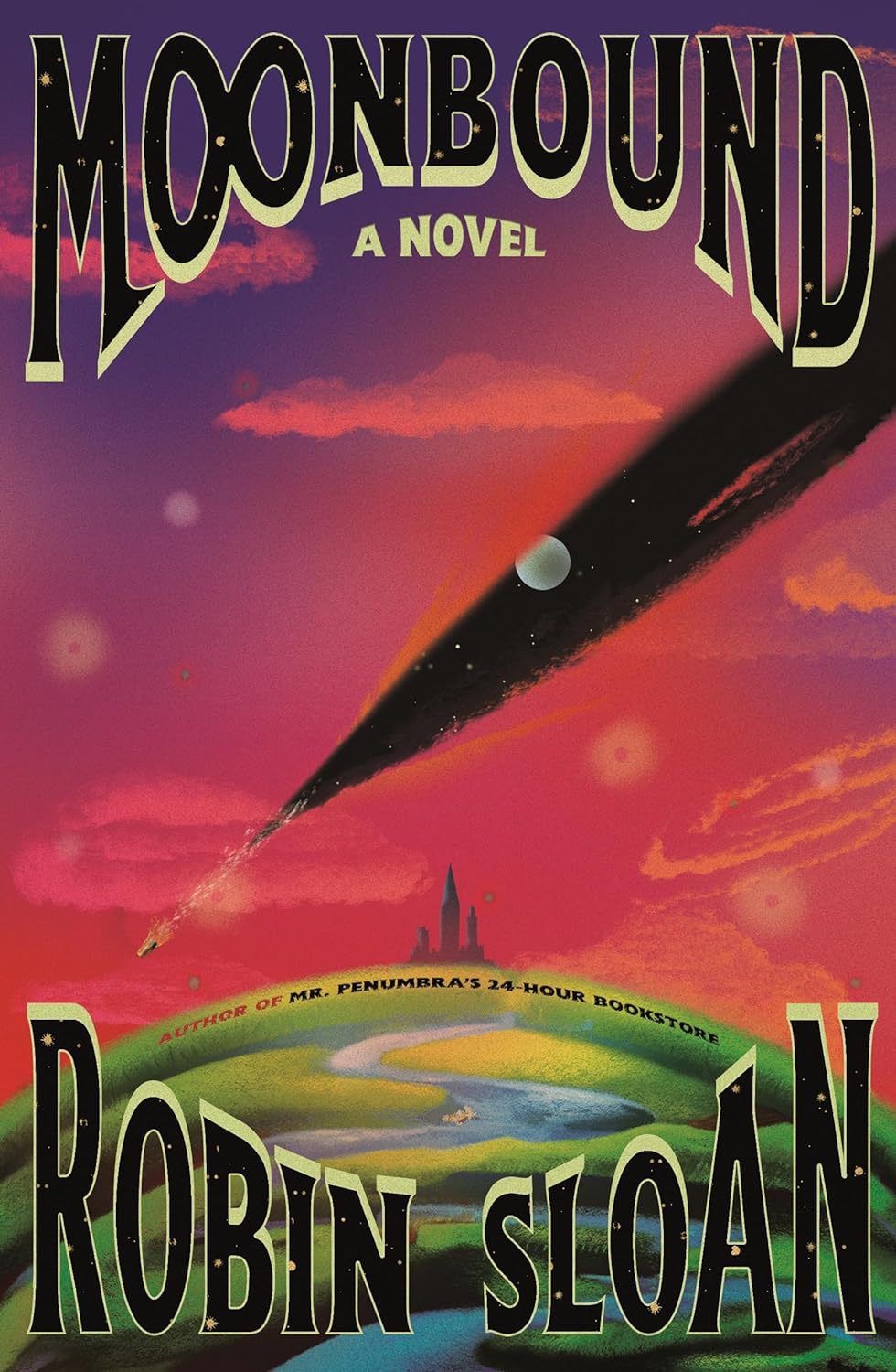
Eleven thousand years have passed since humanity was conquered by its own creation, a group of Artificial Intelligence entities known as dragons that were sent into the galaxy to see what they could learn, who returned a year later determined to ensure that people never leave the planet again. They took up residence on the moon and masked the sky with dust, obscuring the view from the ground, turning the sky perpetually dark. All subsequent attempts at intergalactic communication are rebuffed, with extreme prejudice.
The residents of a small somewhat feudal (there is tech, though, including at least one airplane) community called Sauvage, ruled by the tyrannical Wizard Malory, believe they are the only people left on the planet. That all changes when a twelve-year-old boy named Ariel, who lives in Castle Sauvage, defies Malory’s plans.
Malory has modeled his realm after the legends of King Arthur. There’s even a sword embedded in a rock that Ariel is supposed to extract, making him the new leader in a battle against the dragons. However, Malory knows of another sword in the hands of Altissa Praxa, a deceased female soldier from the Anth period, entombed for millennia in a crashed escape pod. When he retrieves this weapon, Ariel unknowingly inhales a spec of sentient fungus designed to record human memories. It takes up residence in his psyche. (Those familiar with Sloan’s previous novel, Sourdough, will appreciate this nod to his apparent fascination with animated fungi). This entity becomes the first-person narrator of Moonbound as it gradually integrates with Ariel who, for part of the book, is unaware of its presence.
Malory is infuriated by Ariel’s defiance, so the boy flees Sauvage, venturing beyond the valley into a world completely unknown to him, embarking on a voyage of discovery. As he learns more about the reality of the world, he also grows aware of the intelligence within, which creates Eigengrau, a virtual world where Ariel can retreat to brainstorm with imaginary versions of people he knows. He also learns that a human army has been in suspended animation in outer space since the war with the dragons, awaiting a signal to awaken and rekindle the battle.
The embedded chronicler has much to learn, too. It’s been trapped in the cavern with its previous host for ten thousand years (its last memory is from a millennium in our future) so is unaware of the changes that have happened in the intervening centuries, such as the fact that animals can now talk (but there are no birds) and there aren’t any children…other than Ariel. It can be a little jarring at times to switch from the third-person narrative of Ariel’s adventures—as harrowing and fascinating as in any other quest novel—to the chronicler’s first-person version of events, but it never ceases to be fascinating and compelling.
Eventually, Ariel is joined by Durga, a teenaged female warrior who is the only one who responds to the re-activation signal. She agrees to aide Ariel in his quest if he in turn will join her in battle against the dragons. He is also aided by a network of sentient robots, a group of intelligent beavers, and even a talkative dead person. He travels through marshes, visits other towns, including one where recycled objects are the official currency, and ends up in a place with an organic computer, where debaters have to argue on behalf of the opposing viewpoint, and the answers to Ariel’s most important questions lie at the bottom of a deep pool.
Is Moonbound science fiction, fantasy, adventure, quest or coming of age? Yes to all of these and much more. It is the work of a fertile imagination who is willing to explore the vast possibilities contained in this world and beyond.

